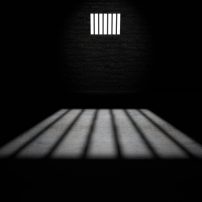
The constant use of handcuffs on prisoners is inhuman and degrading treatment
JUDGMENT
Shlykov and others v. Russia 19.01.2021 (app. no. 78638/11)
SUMMARY
Handcuffs on detainees each time they came out of their cells. The first applicant, in addition, complained about his detention conditions and two other applicants complained about their inability to access legal proceedings to complain about the handcuffs.
According to the ECtHR, handcuffing detainees in all circumstances, including washing and meeting with their lawyer, consisted of a violation of their rights. In addition, there does not appear to have been a regular review of the handcuff regime imposed. It was also held that, in general, the conditions of detention of the first applicant constituted inhuman and degrading treatment.
The Court found a violation of Article 3 (prohibition of inhuman or degrading treatment) of the ECHR.
Also according to the ECtHR, the obstruction of participation in legal proceedings against the regime with handcuffs, resulted in a denial of the right to a fair trial and found a violation of the right to a fair trial article (Article 6 § 1).
Russia should take action under the auspices of the Committee of Ministers under Article 46 of the Convention to safeguard the applicants’ rights so that there are results in other similar cases.
PROVISIONS
Article 3,
Article 6,
Article 46
PRINCIPAL FACTS
The applicants, Vladislav Yuryevich Shlykov, Aleksandr Livonovich Kerekesha, Aleksey Aleksandrovich
Pulyalin and Anton Alekseyevich Korostelev, are Russian nationals who were born in 1973, 1976, 1986
and 1987 and are detained in Solikamsk, Khabarovsk, Ukhta and Kharp (all Russia) respectively.
The applicants were convicted of various crimes and sentenced to life imprisonment. They were held
in correctional colonies and remand prisons and were routinely handcuffed when leaving their cells
as they had committed violent crimes or were considered to be dangerous prisoners. They were
handcuffed for all purposes, including ablutions and meeting with their lawyer.
Mr Shlykov and Mr Kerekesha did not complain of their handcuffing to the domestic courts because
they believed that the then remedies had been ineffective. Mr Pulyalin and Mr Korostelev did lodge
complaints with the domestic courts, which were dismissed.
Mr Shyklov also gave details of the conditions of his prison regime, arguing that they were inadequate.
It is unclear how often the handcuffing regime in respect of the applicants was reviewed.
Relying on Article 3, the applicants complained of their routine handcuffing in prison. Mr Shyklov also
complained of the prison regime more generally.
Relying on Article 6 § 1, Mr Pulyalin and Mr Korostelev complained that their civil case concerning
their handcuffing regime had been examined in their absence.
THE DECISION OF THE COURT…
Article 3
The Court reiterated that Article 3 of the Convention enshrined one of the most fundamental values
of democracies, prohibiting torture, inhuman and degrading treatment regardless of the
circumstances. To be engaged, the suffering endured had to go beyond what could reasonably be
expected in detention. For the Court, use of handcuffs did not normally give rise to rights violations;
however, the systematic handcuffing of a prisoner when leaving a cell could be considered a violation.
The Court noted that in the applicants’ cases they remained handcuffed for long periods over many
years and that this had been damaging to their self-esteem. There had been no legal requirement to
impose this measure. The Court also noted that there did not appear to have been any regular review
of the regime imposed, and thus on what grounds the authorities could have ordered and maintained
the restrictions.
In sum, handcuffing the applicants every time they left their cells had been a violation of their rights.
The Court also found a violation of Article 3 in respect of the prison regime applied to Mr Shlykov.
Article 6 § 1
The Court noted that the relevant applicants had not been allowed to attend their civil proceedings.
It had previously found violations in similar cases against Russia. The Court concluded that there hadalso been a rights violation in this case.
Article 41 (just satisfaction)
The Court held that Russia was to pay Mr Shlykov 3,000 euros (EUR), and Mr Pulyalin and Mr
Korostelev EUR 1,950 each in respect of non-pecuniary damage and to Mr Korostelev EUR 850 in
respect of costs and expenses.
Article 46 (binding force and enforcement)
Regarding the handcuffing, the Court considered that it would be appropriate for Russia to take
measures under the supervision of the Committee of Ministers under Article 46 of the Convention to
secure the rights of the applicants. It pointed out that this would also have effects beyond the current
cases. It thus considered a finding of a violation sufficient in Mr Kerekesha’s case.


